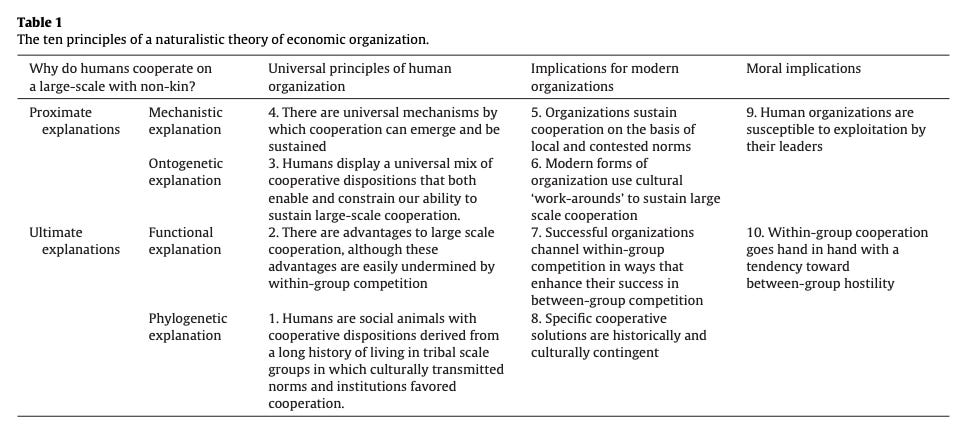
I have a number of other work projects going on, which have impinged on the frequency of letters here. Through the summer I will be making only one letter a week for unpaid subscribers and two or more only for paying customers. I hope this incents more to subscribe, so I am offering a summer special of 20% off for an annual subscription.
Last October, I read a breakthrough article, basically a unified evolutionary theory of deep work culture: A naturalistic theory of economic organization by J.W. Stoelhorst and Peter J. Richerson. Since then I have read it several times.
The authors open with this:
We develop a theory of economic organization grounded in the naturalistic paradigm currently emerging at the intersection of biology and the behavioral and social sciences. The crux of this approach is the recognition that an understanding of the evolutionary origins of human organizational capabilities can inform theories of contemporary economic organization. Modern firms sustain large scale cooperation by applying cultural ‘work-arounds’ to tribal instincts that evolved from simultaneous within-group and between-group competition on a much smaller scale. We translate this insight into ten principles of economic organization.
Here is a table showing the ten principles, which I will expand upon, below:
The key question of economic organizations:
Why do humans cooperate on a large-scale with non-kin? This paper develops a theory of human economic organization that is grounded in the naturalistic paradigm currently emerging at the intersection of the biological, behavioral, and social sciences.
In this and the next paywalled newsletter, I will dig into that question with the help of Stoelhorst and Richerson.
Keep reading with a 7-day free trial
Subscribe to Work Futures to keep reading this post and get 7 days of free access to the full post archives.


